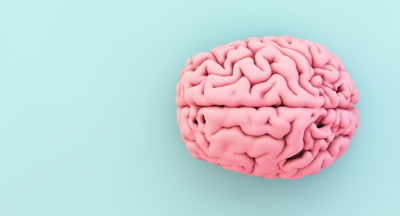
What is Neuropsychological Testing for Children, and How Can It Help?
In the realm of mental health and education, cognitive assessments play a pivotal role in identifying and addressing challenges faced by children and school-aged students. Neuropsychological testing, in particular, has emerged as a valuable tool for assessing cognitive functions and behavioral patterns in young minds. In this article, we will delve into the concept of neuropsychological testing, its benefits in enhancing self-regulation, aiding parents and teachers in understanding academic functioning, and ultimately helping children receive the appropriate support under Individualized Education Plans (IEP) or 504 plans.
What is Neuropsychological Testing?
Neuropsychological testing is a comprehensive assessment that evaluates various aspects of a child’s brain functioning, such as cognitive abilities, memory, attention, problem-solving, and emotional regulation. It involves a series of standardized tests, interviews, and observations to gather valuable information about a child’s strengths and weaknesses in cognitive, emotional, and behavioral domains. These assessments are conducted by licensed neuropsychologists, who specialize in understanding the intricate connections between the brain and behavior.
What are the benefits of Neuropsychological Testing?
- Self-regulation is a fundamental skill that children need to navigate the challenges of life successfully. It involves managing emotions, impulses, and behavior in a manner that promotes well-being and fosters positive social interactions. Neuropsychological testing can provide valuable insights into a child’s self-regulation abilities, identifying areas of strengths and weaknesses. Through neuropsychological assessments, clinicians can identify potential underlying neurological factors that may hinder a child’s self-regulation capabilities. Armed with this knowledge, parents and teachers can work together to develop targeted interventions and strategies to support the child’s emotional and behavioral development. By addressing self-regulation challenges early on, children can better cope with stress, build healthier relationships, and improve overall academic performance.
- Academic success is a crucial aspect of a child’s development, and neuropsychological testing can provide a deeper understanding of their academic functioning. These assessments can identify specific learning disabilities, processing difficulties, and attention-related issues that may impede a child’s academic progress. By pinpointing the underlying cognitive factors contributing to academic struggles, neuropsychological testing enables parents and teachers to tailor educational strategies to suit the child’s unique needs. This personalized approach can unlock a child’s true potential, boost their confidence, and lead to improved academic outcomes. Moreover, understanding a child’s cognitive strengths can also open up opportunities for them to excel in areas where they naturally thrive.
- Neuropsychological testing serves as a cornerstone in the development of Individualized Education Plans (IEP) and 504 plans for children who require additional educational support. These plans are designed to accommodate students with disabilities, learning differences, or other cognitive challenges. Once a child’s cognitive profile has been thoroughly assessed through neuropsychological testing, the results can be used to inform the creation of tailored IEP or 504 plans. These plans outline specific accommodations, modifications, and support services necessary to help the child succeed academically and socially. Furthermore, neuropsychological testing provides objective data and concrete evidence that can help school administrators, teachers, and parents advocate for the appropriate resources and support needed to implement these plans effectively. With the right interventions and support in place, children with learning differences can experience success in the academic setting and feel empowered to pursue their aspirations.
Neuropsychological testing is a powerful tool in the field of mental health and education, particularly for children and school-aged students. Its ability to identify strengths and weaknesses in cognitive and behavioral domains facilitates the development of targeted interventions and support systems that promote self-regulation, academic success, and overall well-being. By collaborating with parents, teachers, and mental health professionals, children can receive the individualized support they need to thrive academically and socially, unlocking their full potential as they journey through their educational years. For more information on Neuropsychological Testing at Cognitive Solutions, visit our neuropsychological testing services page.
Related Posts
Exploring the Differences Between Neuropsychological Testing vs. Quantitative Electroencephalogram (qEEG) Testing
Joy Malanyaon began experiencing severe headaches beginning December 2016....
The Importance of IEP and 504 Plans in Special Education
Individualized Education Plans (IEPs) and 504 Plans are legal documents that are...
Lesser Known Keys to Academic Success: Grit
Guest Blog Lesser Known Keys to Academic Success: Grit There are many...
TREATMENT AND THERAPY PROGRAMS FOR LEARNING DISABILITIES, ADD/ADHD, EXECUTIVE FUNCTIONING, ANXIETY, AND DEPRESSION
Our programs are designed to help you reach your full potential! At CSLC we take...





